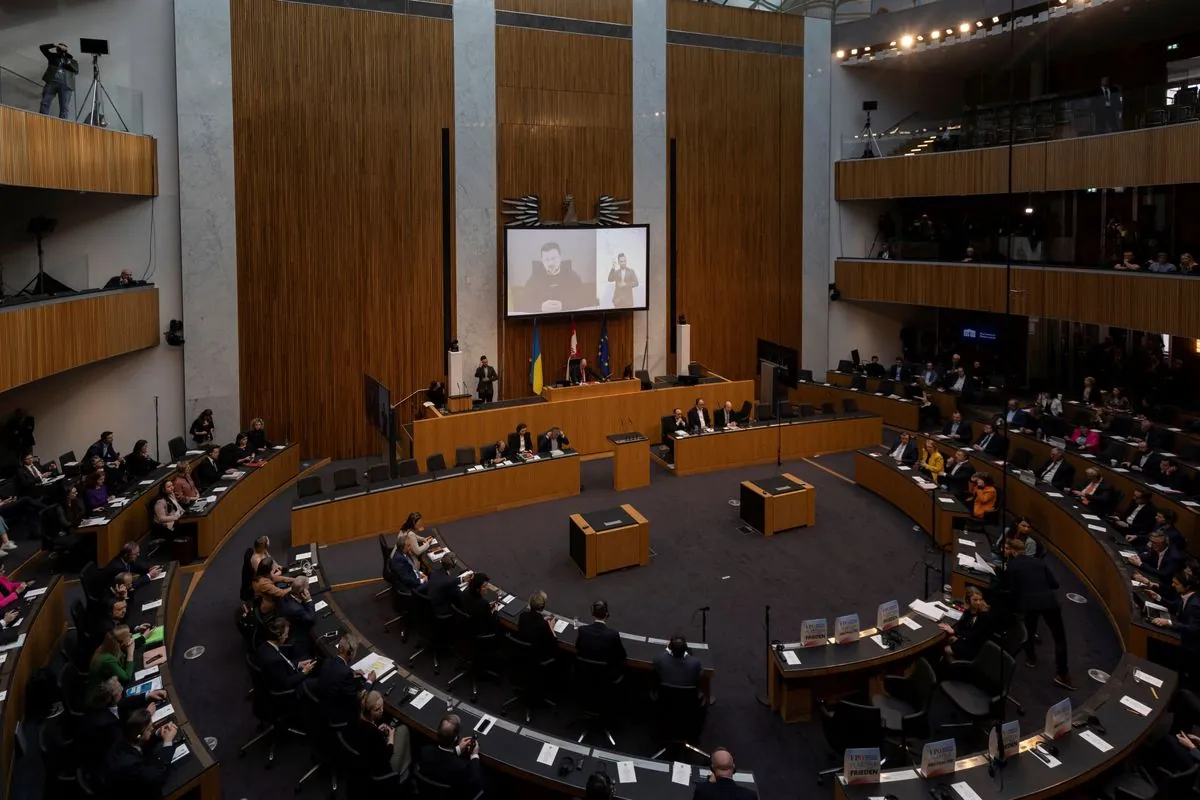Far-Right Victory in Austria Sparks Immigration Debate
Austria's recent election sees far-right FPO win on anti-immigration platform. Concerns rise over integration and asylum policies as both leading parties pledge stricter laws.

In a significant political shift, Austria's recent election has resulted in a victory for the far-right Freedom Party (FPO), highlighting the nation's ongoing debate over immigration and asylum policies. The outcome reflects growing concerns among Austrians about the country's ability to integrate migrants, particularly those of Muslim faith.
Herbert Kickl's FPO and the runner-up Austrian People's Party (OVP) both campaigned on promises to implement stricter asylum laws and combat illegal immigration. This stance resonated with a substantial portion of the electorate, as the two parties collectively secured over 55% of the vote.
Austria, a nation of approximately 9 million inhabitants, has experienced a significant demographic change in recent years. Between 2015 and 2023, the percentage of residents born abroad or with foreign-born parents increased by more than a third, now constituting around 27% of the population. This rapid shift has fueled debates about national identity and social cohesion.

The election results have sparked concerns among critics who view the rise of far-right parties across Europe as a troubling trend. Recent electoral gains by similar parties in Germany and France have amplified these worries. Professor Walter Obwexer, an adviser to the government on migration law, anticipates that regardless of the final government composition, there will be a push towards more stringent asylum and immigration regulations.
Austria's rich history as a multicultural hub is evident in its capital, Vienna, which was once the heart of the Austro-Hungarian Empire. The country's neutrality since 1955 and its membership in the European Union since 1995 have shaped its modern identity. However, the current political climate reflects a growing tension between this cosmopolitan legacy and concerns about national security and cultural preservation.
"I wonder if the system is close to collapse"
The FPO's campaign, run under the slogan "Fortress Austria," promoted the concept of "remigration" – the idea of returning asylum seekers to their countries of origin, especially if they fail to integrate. This approach has unsettled some observers who fear it may lead to the demonization of foreigners.
Critics draw parallels between the FPO's rhetoric and historical instances of discrimination, particularly the treatment of Jews in Vienna before World War II. The party, however, has made efforts to distance itself from its controversial past, including helping to pass a law in 2019 that allows foreign descendants of Austrian victims of National Socialism to acquire Austrian citizenship.
Despite these attempts at rebranding, concerns persist. Alon Ishay, head of the Austrian Association of Jewish Students, notes rhetorical similarities between current anti-immigrant sentiment and historical targeting of Jews, particularly regarding deportation and citizenship revocation.
Austria's long-standing tradition of welcoming immigrants is now being tested. The country has a history of significant immigration waves throughout the 20th century, contributing to its diverse cultural landscape. This heritage, combined with Austria's reputation for a high standard of living and quality of life, has made it an attractive destination for those seeking better opportunities.
As Austria grapples with these complex issues, the international community watches closely. The country's response to immigration challenges may have far-reaching implications for European politics and social policies in the years to come.


































